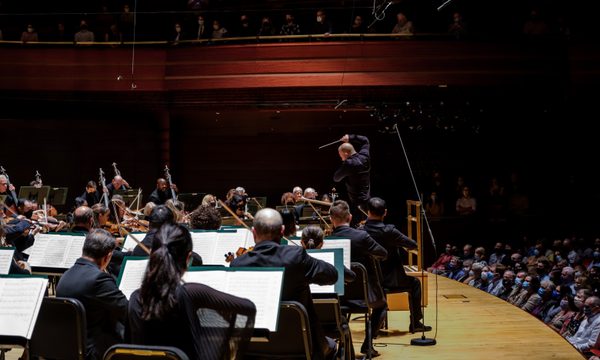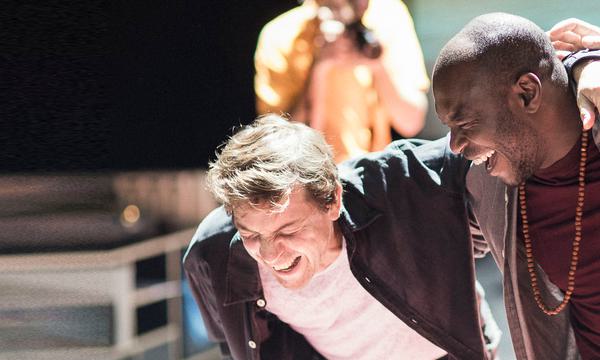
News Story
First things first – what is Rusalka all about?
Dvořák’s best-loved opera is one of the most successful ever written by a Czech composer and the only one of his operas to be regularly performed outside of the Czech Republic today. It’s a dark fairytale that follows Rusalka, a water nymph, as she falls in love with a human prince and makes a deal with an evil witch in order to become part of his world, exchanging her beautiful voice for the gift of legs.
In the video below, Natalya Romaniw, the soprano taking on the role of Rusalka this summer, talks us through the story of the opera in 60 seconds. Beware of spoilers!
So it’s basically a darker version of The Little Mermaid?
Kind of – the story owes much to both Danish and French fairy tales featuring lovelorn water sprites: Hans Christian Anderson’s The Little Mermaid and Friedrich de la Motte Fouqué’s Undine. Versions of the tale had been circulating as folklore for centuries, but The Little Mermaid was published only 67 years before Rusalka was written and you’ll notice many parallels between the stories.
How did it become an opera?
In March 1897, František Šubert, the director of Prague’s National Theatre, wrote to the poet and playwright Jaroslav Kvapil to tell him that “Dvořák would very much like a libretto for an opera with a Czech fairy-tale plot”. Kvapil then began to work on the libretto for Rusalka, without ever coming into direct contact with Dvořák. Luckily, when he read the libretto, Dvořák was inspired and composed the music in just seven months. The opera premiered in 1901 at the National Theatre in Prague, where Dvořák had once been a member of the orchestra.
But what about the music?
The opera is a late-Romantic masterpiece, combining folk melodies, courtly dances and love songs. The shimmering score reflects the watery setting of the story. By far the most famous musical moment is the Act I aria, Song to the Moon, in which Rusalka asks the moon to tell the prince of her love for him. You can watch Natalya Romaniw perform it from home during the spring 2020 lockdown below.
Her voice is amazing!
We know! Natalya Romaniw is an exciting rising star, dubbed ‘one of the great hopes of British opera’ by The Times. She was awarded both Young Artist of the Year at the Gramophone Classical Music Awards and Singer of the Year at the Royal Philharmonic Society Awards in 2020. The pandemic delayed many of the major roles she was due to take on, so 2022 sees her return to the stage for many hotly anticipated debuts.
Watch her discuss her thoughts on Rusalka, her excitement about coming to the Festival and the thrill of performance in this interview.
What does the production look like?
The version coming to Edinburgh this summer, a co-production with Garsington Opera, is a spectacle to behold! Award-winning designer Tom Piper, best-known for his work on the installation of poppies at the Tower of London, is on the creative team and has dreamed up a fantastical forest set. The set is multi-layered, with a moving circular platform forming the divide between the sea below and the land above, lifting throughout the performance to reveal a murky lake on stage.
The staging features six aerialists and acrobats, with Romaniw herself taking to the air during the performance, coordinated by circus choreographer Lina Johansson. The production is directed by Jack Furness, known for his nuanced interpretations of works such as Don Giovanni and The Rape of Lucretia.
Image gallery
A gallery carousel of 10 items
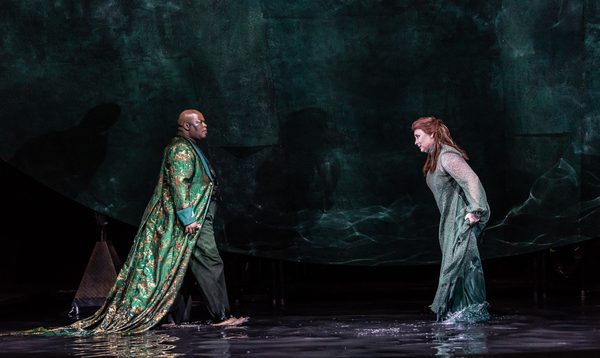
Rusalka
© 2022 Credit : Clive Barda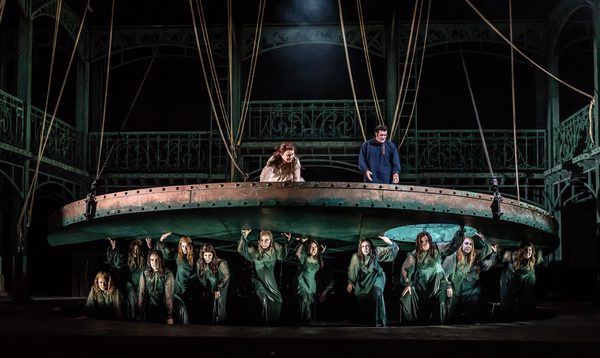
Rusalka
© 2022 Credit : Clive Barda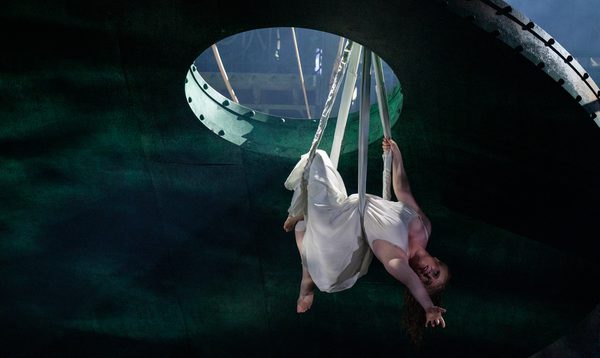
Rusalka
© 2022 Credit : Luca Migliore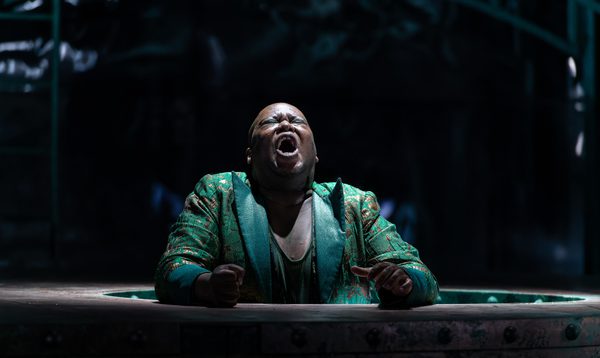
Rusalka
© 2022 Credit : Julian Guidera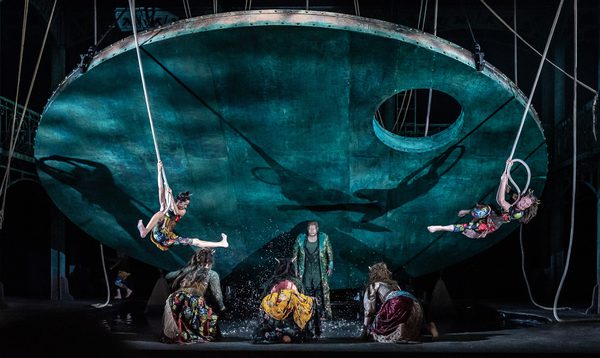
Rusalka
© 2022 Credit : Clive Barda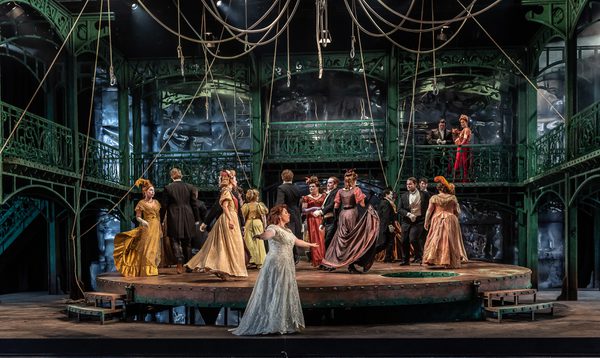
Rusalka
© 2022 Credit : Clive Barda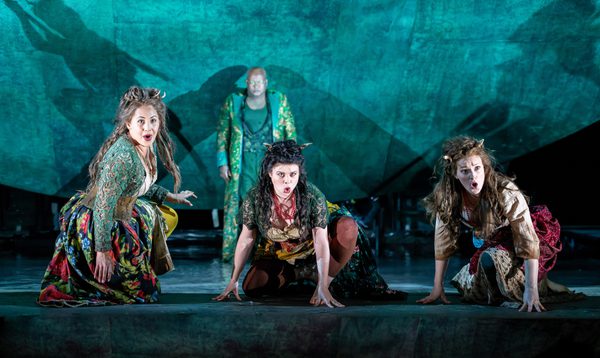
Rusalka
© 2022 Credit : Julian Guidera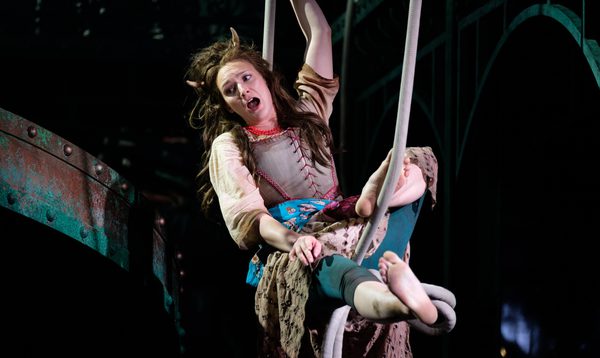
Rusalka
© 2022 Credit : Luca Migliore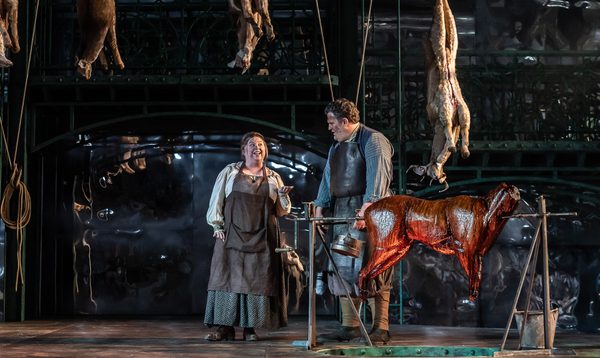
Rusalka
© 2022 Credit : Clive Barda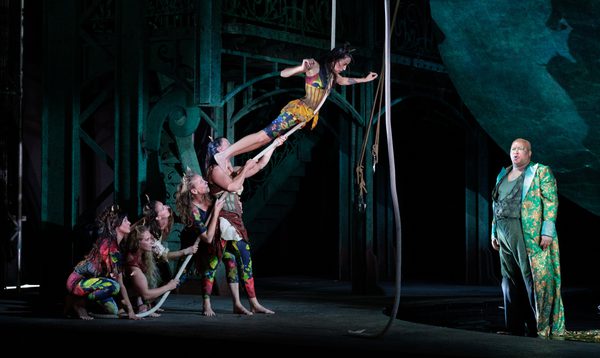
Rusalka
© 2022 Credit : Luca MiglioreWho’s in the pit?
They’re spectacular as well! The Philharmonia Orchestra, one of the resident orchestras of the 2022 Festival, is conducted by Douglas Boyd, Artistic Director of Garsington Opera. Proven to be a winning combination, Boyd’s debut conducting the Philharmonia was described as "breathlessly exciting, and totally thrilling in its effects".
The Philharmonia’s Chamber Players kick off the residency with an intimate performance in The Queen’s Hall on Saturday 6 August, before the full orchestra comes together for Rusalka’s opening night. Hear Romaniw talk about the experience of bringing the production to life.
After that, they’re showcasing the spectacular talents of South Korean pianist Seong-Jin Cho at the Usher Hall, then closing their residency with a concert performance of Fidelio, under the baton of Festival favourite Sir Donald Runnicles.
One last question, how do I get my hands on tickets?
Rusalka is at the Festival Theatre at 7.15pm on 6, 8 and 9 August 2022. You can book your tickets online, or call our box office on 0131 473 2000.
Just in case you need more convincing, check out the critical response to the production’s opening night at Garsington below.
Boyd’s interpretation works on every level
Garsington’s Rusalka is the pinnacle of what opera can and should be.
Dvořák composed nothing more harmonically rich, or more daring in instrumental textures, than this score.
Romaniw... is unquestionably magnificent
Photo: Rusalka
© 2022 Clive Barda
